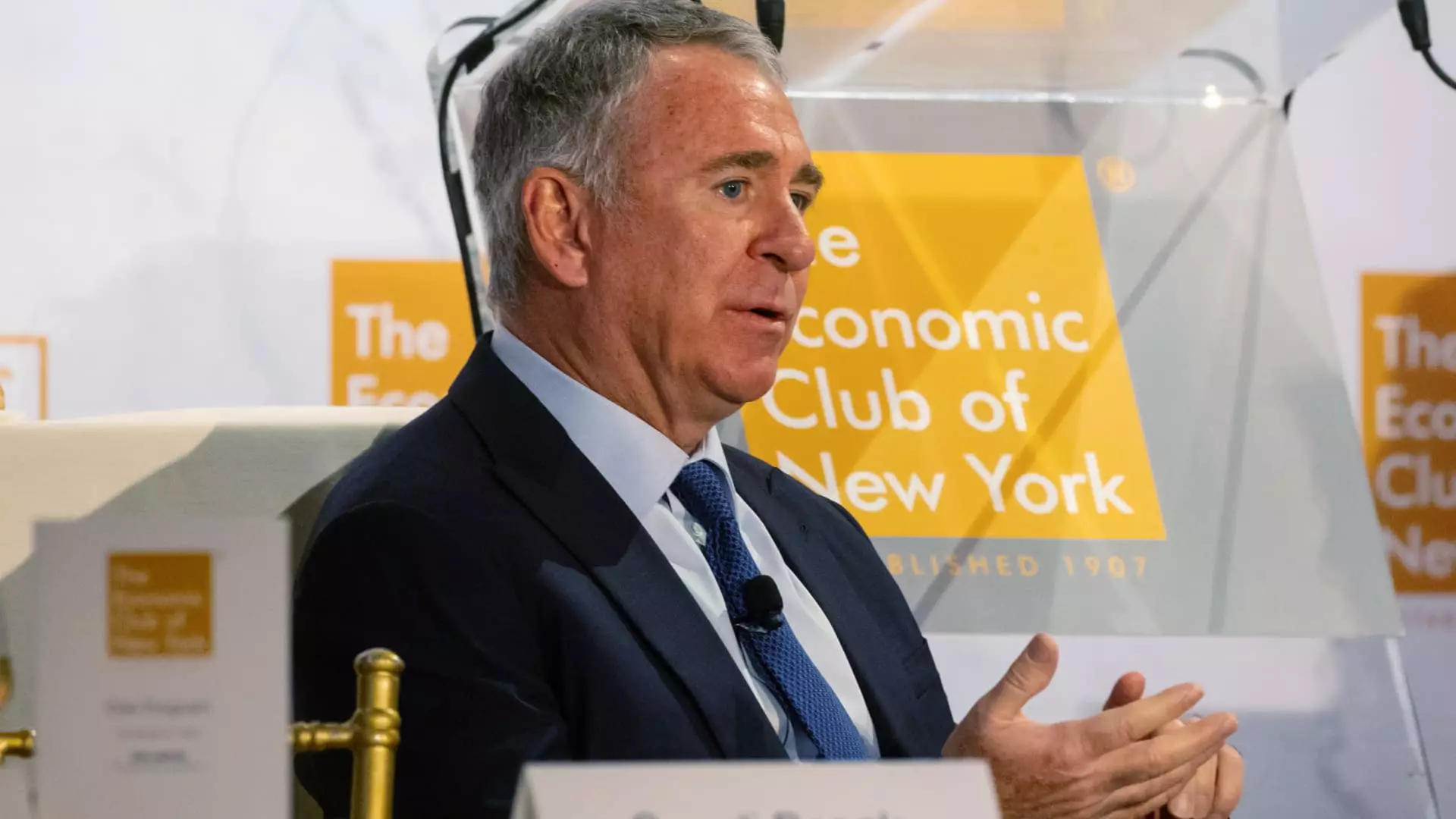In a recent address to the Economic Club of New York, Citadel CEO Ken Griffin raised a crucial concern regarding the potential economic implications of steep tariffs proposed by President-elect Donald Trump. While tariffs are often marketed as a means to protect domestic industries, Griffin argues that such measures could inadvertently pave the way towards a system of crony capitalism, where businesses thrive not through competition, but through legislative favors and trade barriers. As Griffin articulated, this approach may lead to short-lived advantages for American companies, but the long-term ramifications could be detrimental, undermining the very foundation of economic competitiveness.
A False Sense of Security
Griffin elaborated on how companies benefiting from reduced foreign competition may initially experience a surge in performance. However, he warned that this can foster a false sense of security, resulting in complacency among these businesses. Without the necessary stimulus of competition, these companies may fail to innovate or adapt, ultimately becoming less equipped to meet both domestic and global demands. This scenario is not uncommon; industries that lack aggressive competitive pressures tend to stagnate, leading to a decline in overall productivity. Griffin cautions that while tariffs may temporarily shield domestic firms, they can also cultivate an environment where inefficiencies flourish at the expense of consumers and the economy.
The ramifications of Trump’s proposed tariffs are far-reaching. Griffin pointed out that a significant increase in import costs could not only lead to heightened prices for consumers but also stifle economic recovery in the aftermath of pandemic-related inflation. The coupling of protectionist policies with rising inflationary pressures could create a perfect storm, crippling purchasing power and the broader economic landscape. A move toward universal tariffs, particularly a sharp rise on Chinese goods, risks alienating international trade partners and could prompt retaliatory measures that further escalate economic tensions.
Lobbying and Special Interests
Griffin’s comments also shed light on a troubling aspect of tariff policies: the potential for increased lobbying. As tariffs rise, so too does the interest of special interest groups seeking to benefit from a more insulated market. Griffin warned that this could lead to a continuous cycle of higher tariffs, protecting inefficient businesses at the cost of consumer choice. As these industries become reliant on governmental protection, the fundamental principles of a free market are compromised, leading to a self-reinforcing cycle that stifles innovation and growth.
Interestingly, amid his critique of economic policies, Griffin also communicated Citadel’s strategic direction, revealing that the company is not considering going public in the immediate future. He emphasized a commitment to building the business privately, confident in the advantages that this strategy brings during periods of explosive growth. This insight suggests that while Griffin is distinctly critical of the broader economic policies, he remains focused on navigating his organization through the complexities of market dynamics without succumbing to the pressures characterized by crony capitalism.
Ken Griffin’s warnings resonate with a poignant truth: while tariffs may appear beneficial on the surface, the hidden costs could lead us down a path that undermines competitive integrity and harms the American consumer.

Leave a Reply